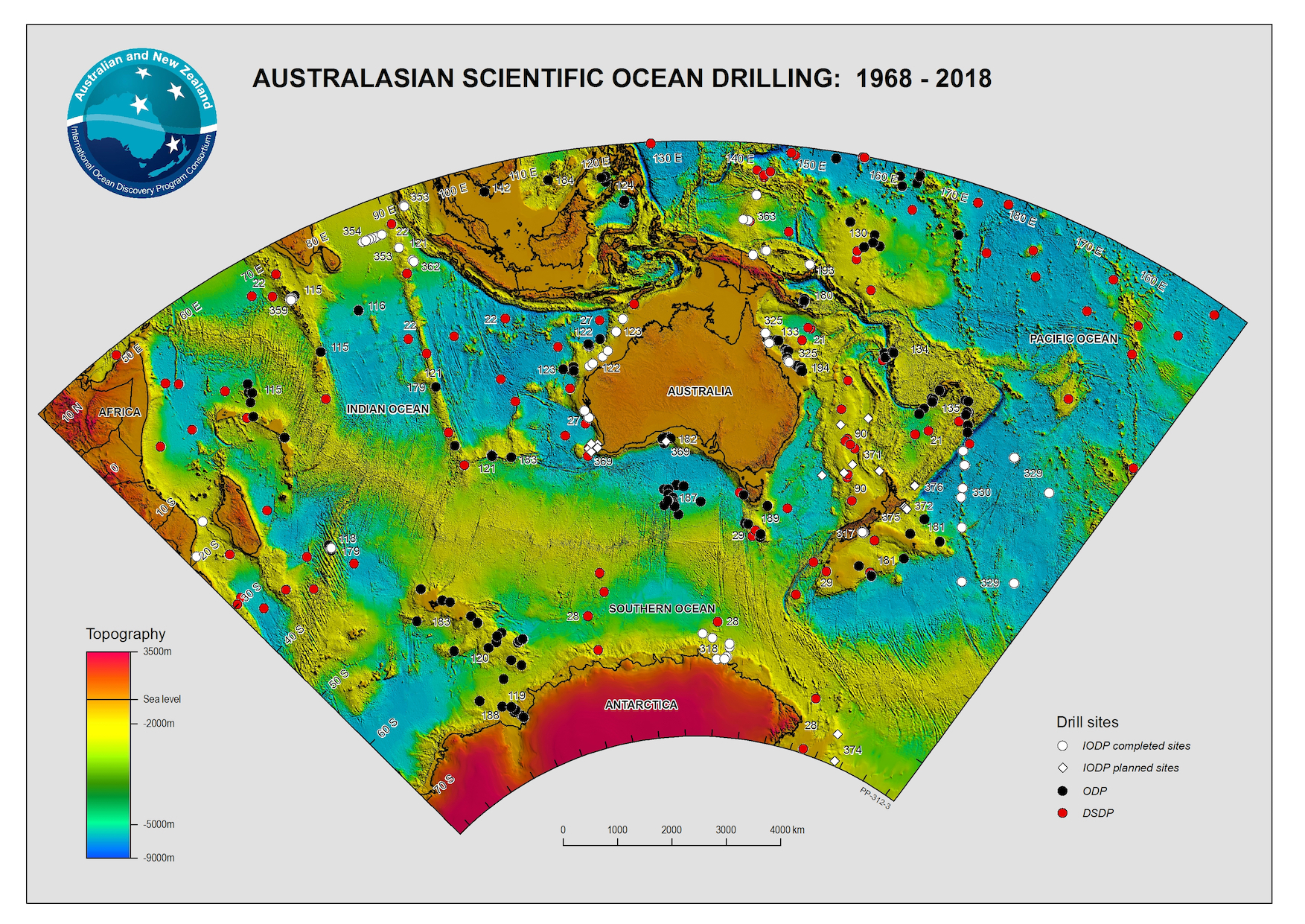Australasian IODP Regional Planning Workshop
Australasian IODP Regional Planning Workshop
Time: June 13-16, 2017
Location: Sydney, Australia
Workshop Conveners: Neville Exon (Australian National University), Karsten Gohl (Alfred Wegener Institut), Michael Gurnis (California Institute of Technology), Stuart Henrys (GNS Science, Wellington), Fumio Inagaki (JAMSTEC), Rob McKay (Victoria University, Wellington), Dietmar Mueller (University of Sydney, Conference Host), Dhananjai Pandey (NCAOR, India), Amelia Shevenell (University of South Florida), and Jessica Whiteside (University of Southampton)
Workshop Final Report (PDF)
The goal of the Australasian workshop is to trigger development of new IODP proposals and reinvigorate existing, compelling proposals. The workshop will be an opportunity to entrain a new generation of young scientists to work collaboratively to plan a new phase of ocean drilling in the Australasian region. The workshop will cover all possible IODP platforms, not just the JOIDES Resolution. European-funded alternative platforms are suitable for work in shallow-water reefal areas and on the Antarctic continental shelf. There is considerable optimism that IODP Proposal 871, for the use of the Chikyu to drill deep into the Cretaceous on the Lord Howe Rise, will soon come to fruition and provide strong encouragement for those hoping to use the Chikyu elsewhere in the Australasian region.
Questions?
Complete information about the workshop can be found here: Australasian IODP Regional Planning Workshop
Additional questions concerning support for U.S. participation can be directed to Mike Gurnis (gurnis@gps.caltech.edu).
The Workshop Agenda is undergoing frequent updates as planning continues. Updates are posted at: http://iodp.org.au/for+scientists/australasian-iodp-regional-planning-workshop-2017/.
Questions?
Complete information about the workshop can be found here: Australasian IODP Regional Planning Workshop
Additional questions concerning support for U.S. participation can be directed to Mike Gurnis (gurnis@gps.caltech.edu).
Special call for early career researchers from U.S. institutions to apply for USSSP funding to participate in the Australasian workshop. The workshop will be an opportunity to entrain a new generation of young scientists to work collaboratively to plan a new phase of ocean drilling in the Australasian region. The deadline for early career applicants has been extended to April 17th.
This workshop is co-funded through a workshop award from the U.S. Science Support Program (USSSP), the IODP Program Member Office for the U.S. This special call invites applications from early career researchers (PhD students and post-docs) from U.S. institutions. It is anticipated that 5 to 6 early career researchers can receive travel support to join the workshop.
All interested early career participants should submit a single PDF document, including (1) a two-page CV; (2) a 100-word statement of interest; and (3) for those wishing to give a short talk, a 1-page Abstract, to Mike Gurnis (gurnis@gps.caltech.edu) no later than April 17, 2017. Any questions concerning support for U.S. participation can be directed to Mike Gurnis (gurnis@gps.caltech.edu).
Support is available for a limited number of participants from IODP Program Member Offices (PMOs), including: the Australia-New Zealand IODP Consortium (ANZIC); the U.S. Science Support Program (USSSP); the European Consortium for Ocean Research Drilling (ECORD); IODP India; and Japan Drilling Earth Science Consortium (J-DESC). Support from these programs will be made directly to qualified participants from the PMOs.
Questions?
Complete information about the workshop can be found here: Australasian IODP Regional Planning Workshop
Additional questions concerning support for U.S. participation can be directed to Mike Gurnis (gurnis@gps.caltech.edu).







